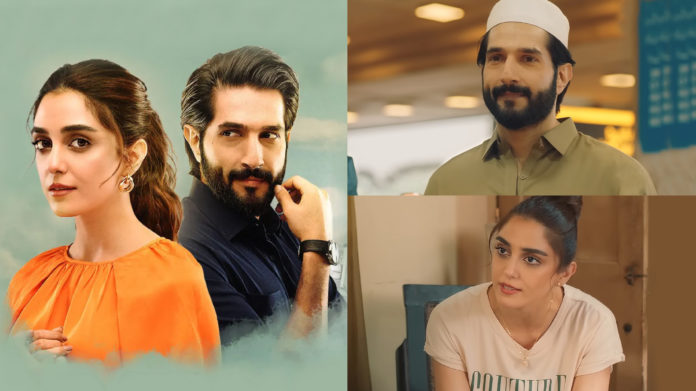Eighteen episodes in, HUM TV’s drama serial Yunhi is not only giving us a refreshing storyline and a break from stereotypical plots but is also a conversation starter that has slowly but assuredly made us think and rethink about our cultural beliefs and how religion fits in the entire narrative. The drama is diligently challenging the cultural norms that limit freedom of speech and expression, disguised under the banner of Islam and religion.
Before we dive in, here is a little introduction about the story of Yunhi. The drama follows the lives of Dawood and Kaneez Fatima aka Kim, as Bilal Ashraf and Maya Ali respectively. They are two-polar opposites who have been raised in different cultures and societies, but fate brings them together when they get married after pressure from their elders. When Kim, who has been raised in America, moves to the traditional household of Dawood, chaos broke loose as the ‘liberal’ Kim questions the cultural norms while she is scrutinized for her choice of clothing and her being ‘azaad khayal’ (too open-minded).
The drama rationally talks about sensitive issues, and culture norms that unfold within a conventional desi household, highlighting conversations about liberalism, conservatism, and religion’s role. Yunhi is asking all the right questions that give food for thought.
Here is how Yunhi is making a difference:
Yunhi Addresses Women and Forced Marriages:
While the whole premise rests on a forced marriage between a couple who despise each other, the drama is also highlighting why forced marriages are a recipe for disaster.
When Dawood’s sister finds herself being forced to marry her cousin, even when she likes someone, Kim comes to the rescue, standing against the entire family and advocating for the rights of her sister-in-law. The dialogues exchanged between them highlight that Islam never allowed forced marriages and instead it is the culture that promotes such incidents and limits women’s right to choose.
Does education make you woke or impudent?
There are several times in the drama when this conversation is brought to light that ‘allowing’ a woman to pursue higher education gives her an opportunity to defy her parents and be disobedient, especially by the grandfather who is the main patriarchal figure of the household.
Kudos to the makers of Yunhi who have shed light to this notion prevalent in the current age and negating this thought process while simultaneously highlighting that this is a cultural limitation.
The art of dressing: Does it qualify to determine someone’s character?
What happens when Kim dons a pair of jeans and a fitted-shirt in the house-and even more worrisome when she wears similar clothes outside- in a household where women are expected to constantly wear dupattas? Well, it causes havoc in the domestic household, directly translating to questioning her upbringing, her morals, and her choices.
While Dawood keeps on reminding Kim to wear ‘decent clothes’, Kim emphasis that religion does not permit forcefulness. She keeps on highlighting that the choice of clothing does not permit others to pass judgment and is not a testament to one’s personality but instead is a form of self-expression that can evolve over time.
The bottom line is that extremes of any kind can and will result in problems. It is imperative to accept differences and find a middle ground and instead of following culture blindly in the name of religion, we should try to understand religion from our own lens.




